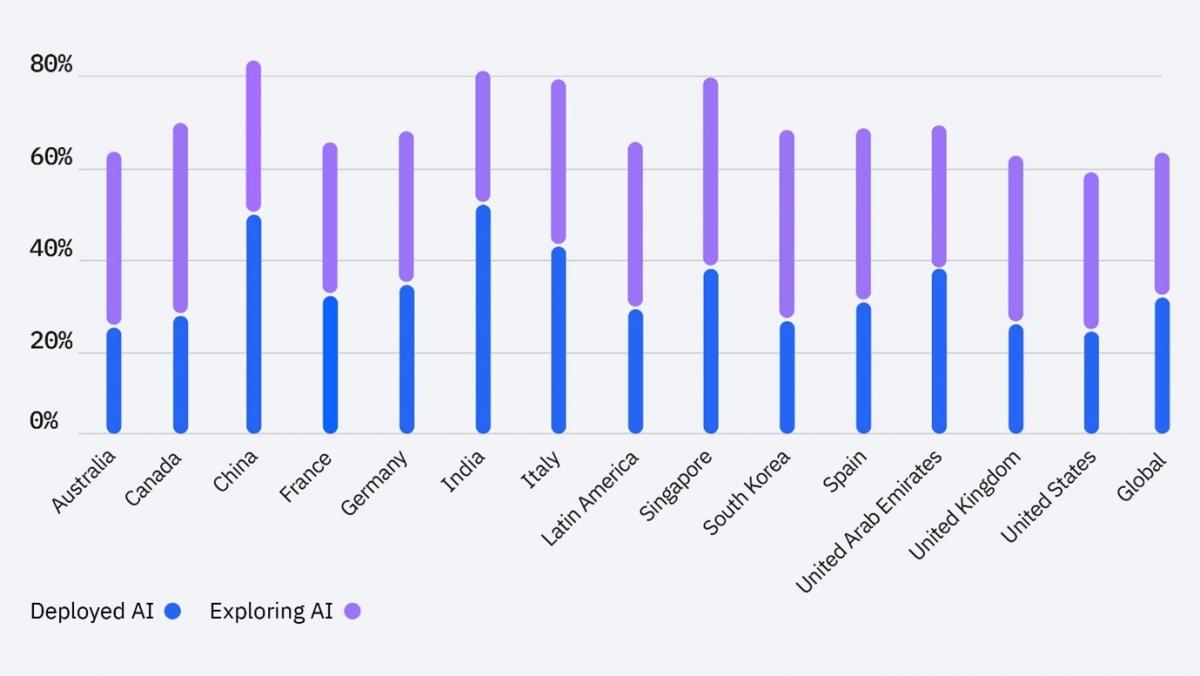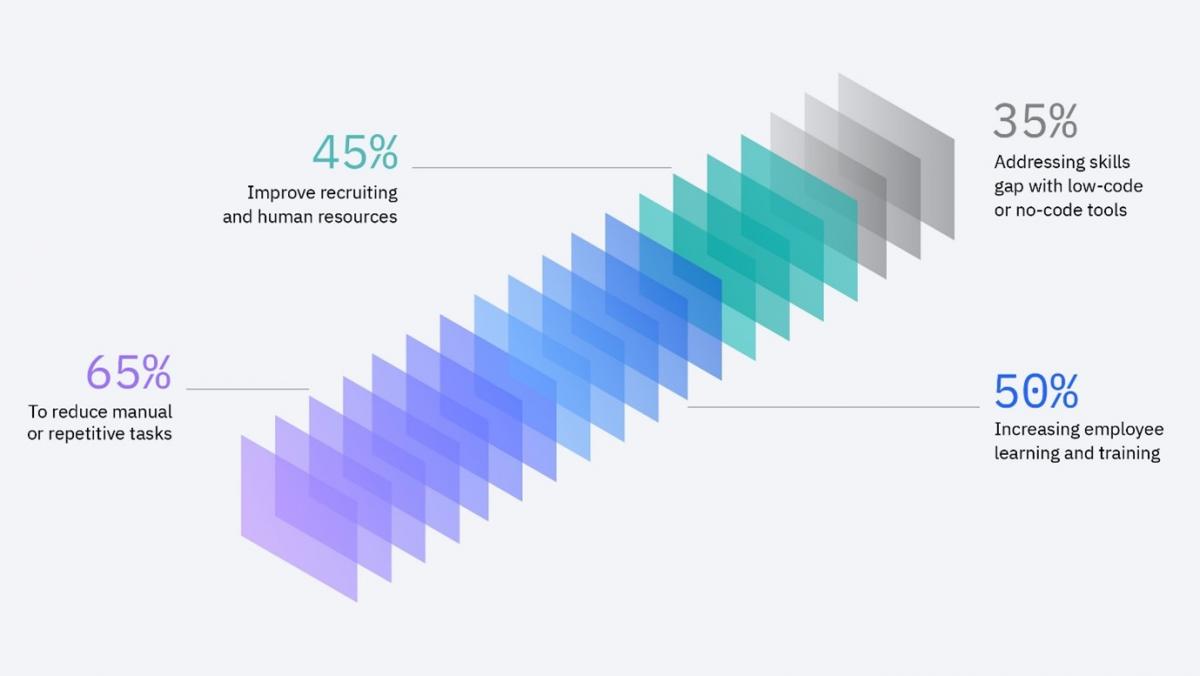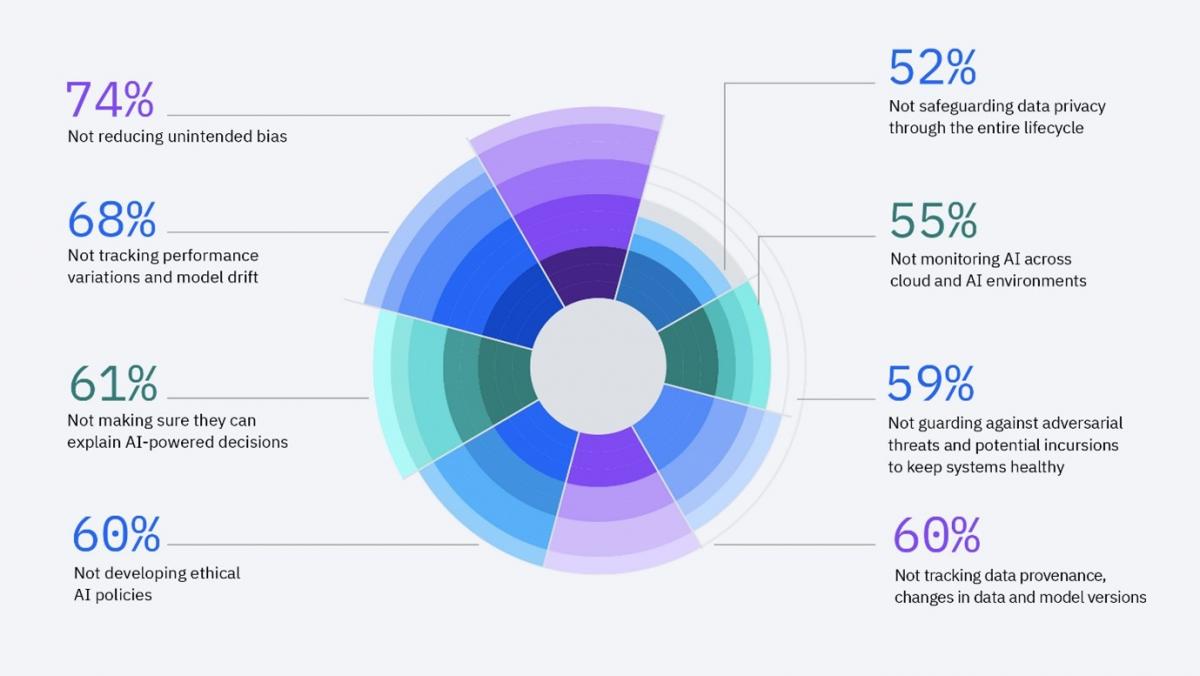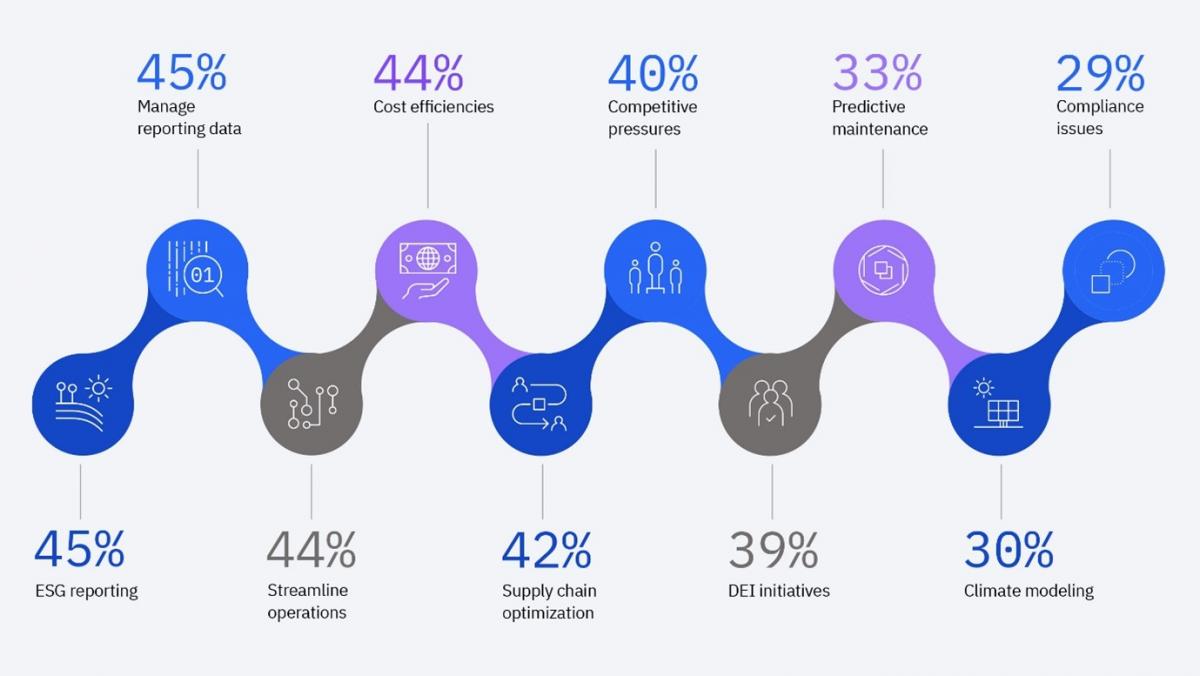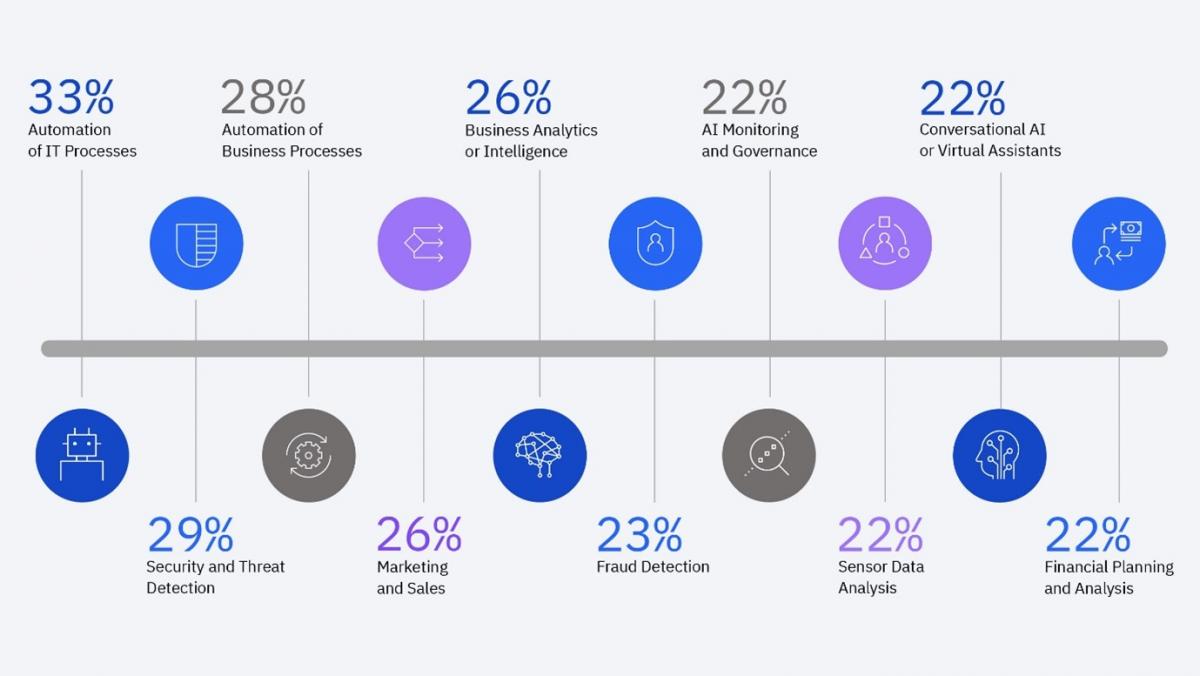Steady AI Adoption as Organizations Look to Address Skills Shortages: Survey
New market research commissioned by IBM has revealed that global AI adoption grew steadily over the last year, to 35 percent of those surveyed in 2022, further underscoring that AI growth is poised to accelerate as it continues to mature, becoming more accessible and easier to implement.
Other data points from the "Global AI Adoption Index 2022," conducted by Morning Consult on behalf of IBM, reveal this growth was due to companies recognizing the value of AI as they emerged from the challenges of the COVID-19 pandemic and invested in their digital transformation, while dealing with talent and skills shortages. In fact, the study shows that AI adoption was up 4 percentage points compared with 2021.
Today, 35% of companies reported using AI in their business. Compared with 2021, organizations are 13% more likely to have adopted AI in 2022. Additionally, 42% of companies report they are exploring AI.
Large companies are more likely than smaller companies to use AI. Chinese and Indian companies are leading the way, with nearly 60% of IT professionals in those countries saying their organization already actively uses AI, compared with lagging markets like South Korea (22%), Australia (24%) the U.S. (25%), and the U.K. (26%).
IT professionals in the financial services, media, energy, automotive, oil, and aerospace industries are most likely to report their company has actively deployed AI, while organizations in industries including retail, travel and government/federal services and healthcare are the least likely.
A major explanation for gradual AI adoption is the need to implement a successful data management strategy and applying AI to that data achieve business goals. Companies that have not deployed AI are three times as likely to say that they have little to no confidence their company has the proper data management tools. Today, 37% of companies are developing an AI strategy, 28% already have a holistic strategy in place, and 25% have a strategy that is focused only on limited or specific use cases.
More than costs, lack of tools, or project or data complexity, the skills gap remains the biggest barrier to AI adoption. At the same time, AI is also helping organizations address skills shortages, for example by automating tasks for skilled workers so they can be more productive, or by using AI-assisted learning or employee engagement. Almost one-in-four companies are adopting AI because of labour or skills shortages, and 30% of global IT professionals say employees at their organization are already saving time with new AI and automation software/tools.
While AI investment continues to grow, barriers to adoption remain, particularly for smaller organizations who are significantly less likely to take advantage of AI. The survey determined top three barriers to AI adoption for businesses are: limited AI expertise or knowledge (34%), high prices (29%), and lack of tools and platforms for developing AI models (25%).
Download the full report here.
What are companies saying about AI?
AI adoption rates around the world
How organizations are using AI to address labor or skill shortages
A majority of organizations have not taken key steps towards trustworthy AI
IT professionals at companies that use AI today for environmental risk analysis and sustainability are using AI in these ways.
How organizations are using AI today
Methodology
This poll was conducted from March 30-April 12, 2022, among a sample of 7,502 senior business decision-makers with some knowledge/influence over their company's IT decisions, including 500 respondents each in the US, UK, France, Germany, Spain, Italy, China, India, Singapore, Australia, Canada, UAE, and South Korea, and 1000 respondents in across the Latin America region

